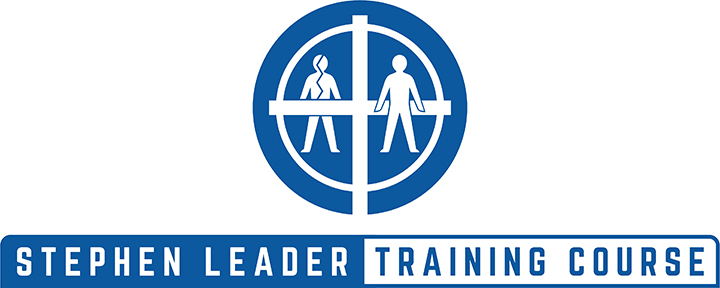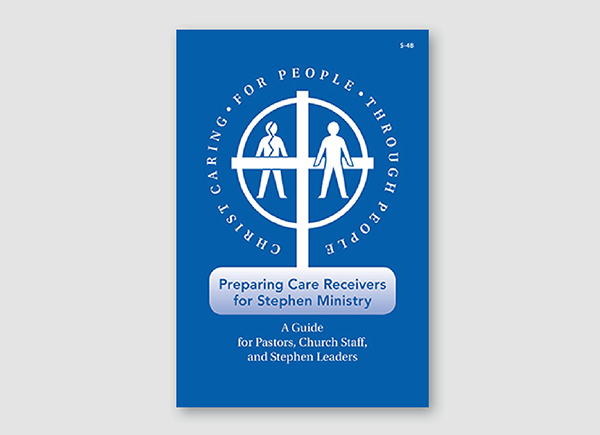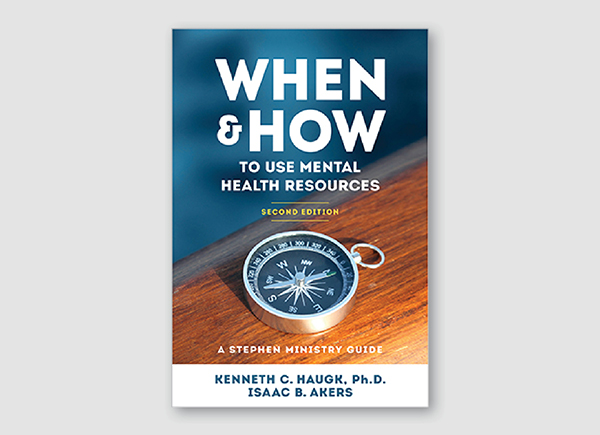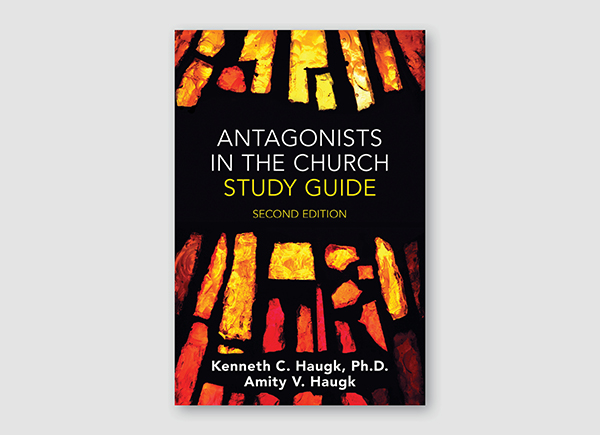
Additional Leadership Resources | Units 9–12
This page looks back at Units 9–12 of the Stephen Leader Training Course, pointing out additional resources to help you succeed in leading your Stephen Ministry.
Unit 9 | Finding Care Receivers, Part 1:
Identifying People Who Need Care
Unit 10 | Finding Care Receivers, Part 2:
Equipping Lookouts to Pave the Way
These two units introduced the Stephen Ministry system step of finding potential care receivers in your congregation and community, with many tools and resources for identifying those who need care and equipping people to be on the lookout for care receivers.
Key Leader’s Manual Resources
These units drew on the following in your Leader’s Manual—check out these resources for more ideas.
-
S-4, “Find Care Receivers for Stephen Ministry”
-
S-4A, “Identifying People Who Need Care”
Additional Resources from the Stephen Leader Online Toolkit
-
S-4, “Find Care Receivers for Stephen Ministry”: Here you’ll find several videos of care receivers sharing their stories, which you might use during worship and in other settings, as well as other resources to help you find potential care receivers.
-
Presentation for Training Others to Serve as Stephen Ministry Lookouts (S-4A): This mini-presentation equips people in your congregation to help identify potential care receivers and pave the way for Stephen Ministry.
-
How Lookouts Pave the Way for Stephen Ministry (S-4A): Share this simple resource with Stephen Ministry Lookouts—it provides key information about how they will connect potential care receivers with your Stephen Ministry.
Featured Resources
Journeying through Grief is a set of four short books to send to people at four crucial times after the loss of a loved one, offering care, assurance, encouragement, and hope. Congregations that send these books often connect recipients with a Stephen Minister as well.
Cancer—Now What? is a book to give to those with cancer and their loved ones, filled with useful information and practical ideas for dealing with the wide range of challenges that cancer brings. Providing this book can be a great way to connect with potential care receivers.
Unit 11 | Finding Care Receivers, Parts 3 and 4:
Preparing Care Receivers and Connecting Them with Stephen Ministers
This unit concluded the exploration of how to find care receivers, focusing on conducting the preparation interview and matching care receivers with Stephen Ministers.
Key Leader’s Manual Resources
This unit drew on the following in your Leader’s Manual—check out these resources for more ideas.
-
S-4B, “Preparing People to Receive Stephen Ministry”
-
S-4C, “Connecting Care Receivers with Stephen Ministry”
-
S-4D, “Making Referrals Outside of Stephen Ministry”
-
S-4E, “Bringing Caring Relationships to a Close”
Additional Resources from the Stephen Leader Online Toolkit
-
The Safe House (S-4B): During the preparation interview, this script and handout provide a way to talk to potential care receivers about the concept of the Safe House (from Stephen Minister training), helping them feel more comfortable accepting care from a Stephen Minister.
-
Agreement to Receive Care (S-4B): Whenever you conduct a preparation interview, use this agreement to make sure the care receiver fully understands Stephen Ministry and agrees to receive the care of a Stephen Minister.
Featured Resources
Preparing Care Receivers for Stephen Ministry is a concise guide for those who conduct preparation interviews. It’s a convenient reference for Stephen Leaders and an invaluable resource for equipping pastors and church staff. You have a copy in your S-4B folder—order additional copies here.
When and How to Use Mental Health Resources, one of the books used in Stephen Minister training, outlines the kinds of care Stephen Ministers do and do not provide, along with how best to work with mental health professionals to connect people with the type and level of care they need.
Unit 12 | Leading a Mission-Focused Stephen Ministry
This unit described how Stephen Ministry aligns with, supports, and helps carry out the overall mission of any congregation.
Key Leader’s Manual Resources
This unit drew on the following in your Leader’s Manual—check out these resources for more ideas.
-
L-2, “Pastors as Vital Members of Your Leadership Team”
Additional Resources from the Stephen Leader Online Toolkit
-
L-2, “Pastors as Vital Members of Your Leadership Team”: This page includes multiple sample sermons pastors can draw from as they speak about Stephen Ministry in your congregation.
-
Stephen Ministry Missional Leadership Assessment (L-2): This assessment tool will help your team consider and talk about your Stephen Ministry in terms of four key missional areas: Mission, People, Vision, and Action.
Featured Resources
Antagonists in the Church shares practical guidelines and strategies to recognize the signs of an antagonist, respond to their attacks, and prevent antagonism from happening. Using this resource is a good way to support and care for your congregation’s leadership.
The Antagonists in the Church Study Guide turns the book into a course for leadership teams and other congregation groups. It includes a range of questions for each chapter, helping participants apply the strategies and concepts to their unique situation.






